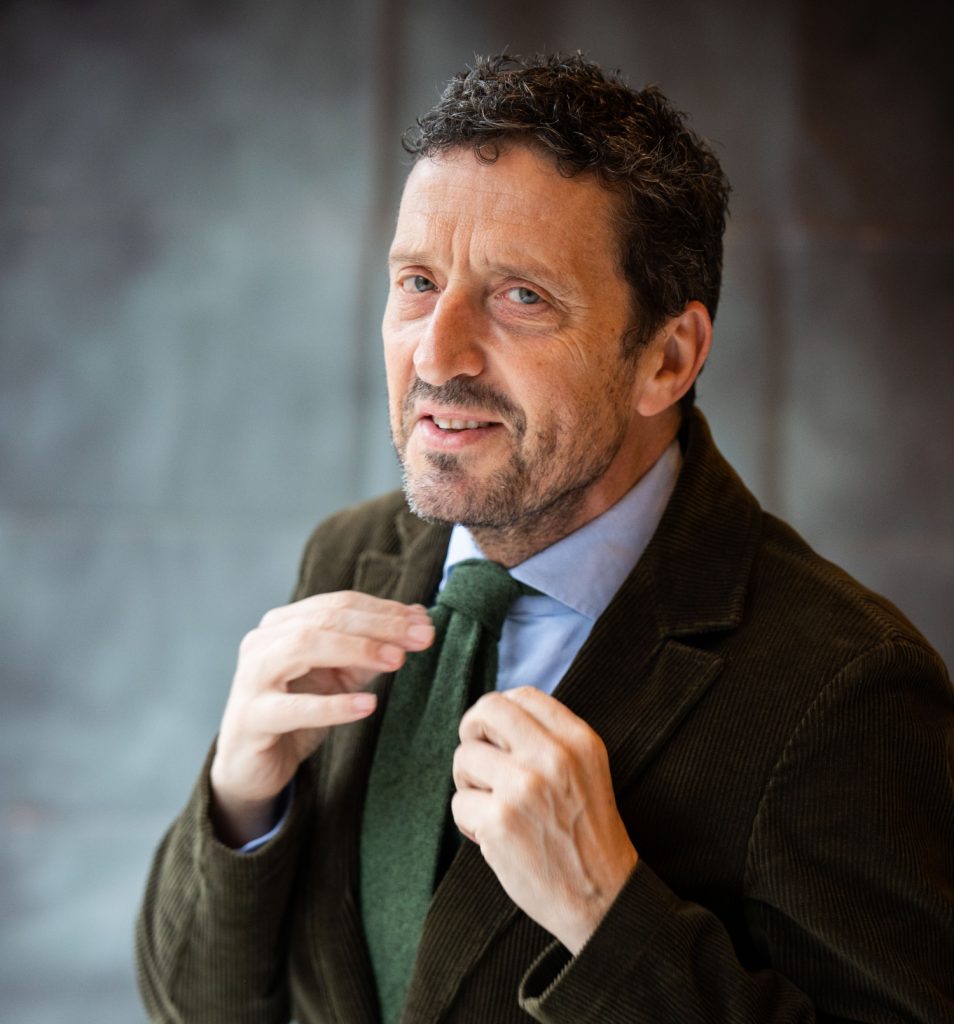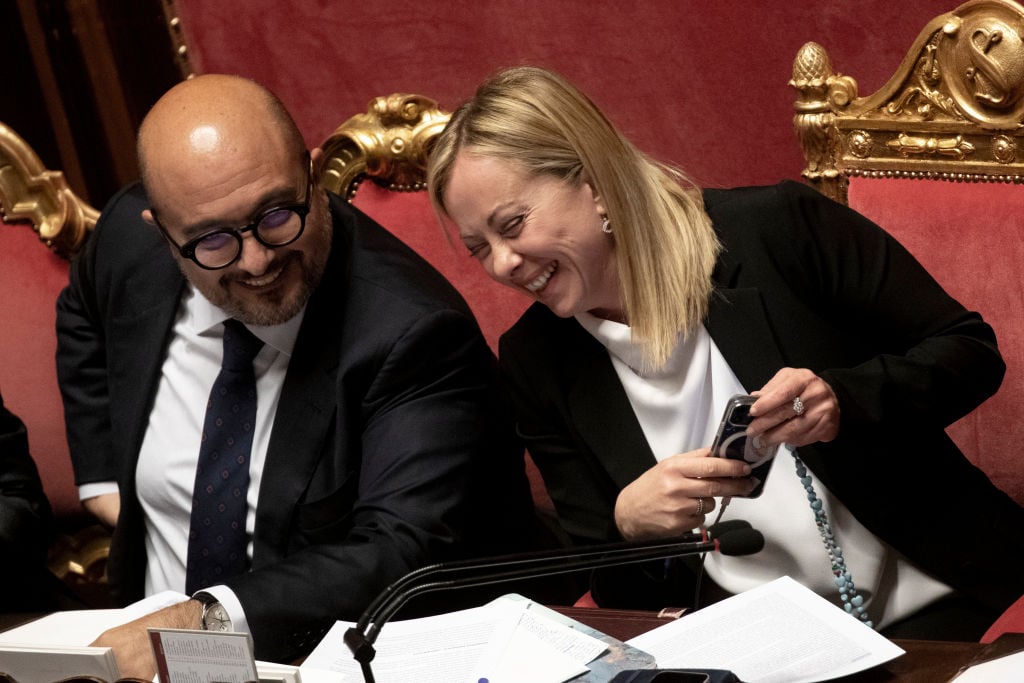Art World
Right-Wing Journalist Pietrangelo Buttafuoco Is Set to Take Over the Venice Biennale—Who Is He?
In the past, Buttafuoco was a member of far-right groups. More recently, he has converted to Islam.

In the past, Buttafuoco was a member of far-right groups. More recently, he has converted to Islam.

Jo Lawson-Tancred

Last week, the right-wing journalist Pietrangelo Buttafuoco was nominated to be the next president of the Venice Biennale by Italy’s culture minister Gennaro Sangiuliano. His ascendance into one of the top leadership roles for art and culture in Italy, if not the world, is a win for the country’s far-right government, which has been promoting right-leaning sympathizers into positions of power across the culture sector since Giorgia Meloni was elected as prime minister last fall.
The Biennale’s current president Roberto Cicutto, who was appointed by a previous center-left cabinet, will be ousted after his first term ends in March 2024, just one month before the biennale he organized opens to the public on April 20. Italy’s Chamber and Senate have yet to give their opinion on Sangiuliano’s nomination, due on November 14, but this stage is usually just a formality.
For commentators across the political spectrum, the nomination of Buttafuoco signifies more than your average leadership reshuffle. “Another glass ceiling has been broken,” proclaimed Raffaele Speranzon, of Italy’s ruling party Fratelli d’Italia. “Often, the Biennale Foundation has been considered by the left as a fiefdom in which to place friends and acolytes. Buttafuoco, finally, affirms a change that the Meloni government wants to imprint in every cultural and social center of the nation.”
Other statements celebrating the news have praised Buttafuoco as an intellectual. “Sangiuliano has chosen a professional of great cultural depth, a writer and an authoritative essayist,” Antonio Giordano, a high-ranking member of Fratelli d’Italia and Italy’s National Alliance, told Secolo d’Italia.
Buttafuoco has been “awarded the most coveted crown,” wrote Pino Corrias in the Italian version of Vanity Fair. “What is jarring is the warlike tone of the right which claims the nomination as spoils of war and not as the natural alternation of changing seasons,” he said. He compared the nomination to the swift replacement of Carlos Fuortes as CEO of RAI, Italy’s main public broadcaster, with the Meloni-backed Roberto Sergio. Sergio, in turn, appointed as director general Giampaolo Rossi, an outspoken supporter of Trump, Putin, and Orbán, who, in 2019, said that “anti-fascism is a caricature of the past.” RAI has since been widely dubbed “Tele-Meloni.” This switch-up “didn’t achieve much,” said Corrias, “since it was discovered that the new arrivals had nothing original to say, except by sinking ratings.”
Originally from Sicily, Buttafuoco, who recently turned 60, was born with links to the far-right as the nephew of Antonino Buttafuoco, a member of the Italian Social Movement (MSI), a party associated with neofascist ideologies. Buttafuoco joined the MSI himself and was a member of the National Alliance until 2003. As a journalist he has written for both right and left-wing publications and recently published a gushing biography of Silvio Berlusconi.
Buttafuoco’s limited experience as a leader in the cultural sphere extends to a stint as president of the regional theater Teatro Stabile di Catania from 2007–12 and his current presidency of the Teatro Stabile d’Abruzzo. Buttafuoco has known Sangiuliano for decades and publicly supported Meloni, claiming earlier this year: “Every morning I say a prayer that she will make it.”

Italy’s prime minister Giorgia Meloni and minister for culture Gennaro Sangiuliano laugh during a confidence vote at the Italian Senate, on October 26, 2022 in Rome, Italy.Photo by Alessandra Benedetti – Corbis/Corbis via Getty Images.
Never quite straightforward about his ideologies or intentions, Buttafuoco has long enjoyed courting controversy and toying with people’s expectations. When pressed on his beliefs in 1999, Buttafuoco mysteriously claimed, “I am not a fascist. I am something else.”
In one of his many books, Buttafuoco revealed that he had converted to Islam, taking the name Giafar al-Siqilli. When he became a candidate for regional elections in Sicily in 2015, Meloni opposed him, stating: “I don’t think it’s a good idea to nominate a person who has decided to convert to Islam. Everyone is free to profess the religion they want, but I believe that in recent years Italy and Europe must reclaim their Greek, Roman, and Christian origins before those who would like to sweep them away.”
“I raised Pietrangelo Buttafuoco, and I assure you that his thoughts have remained the same as when he got into my [Fiat] 500 to go to Italian Social Movement (MSI) rallies. He’s a man of the right, without a doubt,” Rino Ardica, a former member of MSI, told the left-leaning La Repubblica. The article’s author, Concetto Vecchio, conceded that Buttafuoco was the present government’s most “illustrious” intellectual, but added that he has a “divisive, histrionic, unconventional profile.”
Less preoccupied by Buttafuoco himself, “whose leadership we cannot criticize before it begins,” Cristina Piccino, writing in Il Manifesto, took issue with “the policy of occupation at any cost implemented by the right to the detriment of real planning.” She claimed that at the recent Venice International Film Festival, “there were those who did not hide their concern regarding the management of the Biennale machine—which is certainly among the most complex Italian cultural institutions.” She added, “governing cultural institutions is not just a question of being ‘aesthetes’ or ‘provocateurs,’ of appearing, of red carpets, of media hype. There is a need for meticulous work.” She concluded: “It’s not about trophies, it’s about results.”
Despite these fairly tame critiques, a denouncement of the “media massacre” against Buttafuoco was published by Il Giornale, which is owned by the Berlusconi family. The article decried the left-leaning papers’ “personal attacks, unfair comments, and provocative quips,” concluding that “ideological prejudice, no matter whether cultural or political, has always been the raison d’être of the Italian left.” The Libero Quotidiano described the left-wing backlash as a “resentful, palpable gnawing” from which the right “derives an indescribable satisfaction.”
In an op-ed for La Stampa, the former Mayor of Venice, Massimo Cacciari, bemoaned how “what seems to be exclusively of interest is whether the nominee is right-wing or left-wing,” calling into question how much difference the nomination will actually make.
“Will the new ‘right-wing’ president ban who knows what avant-garde audacities and dedicate himself to curating exhibitions on ‘god, homeland, and family’?” Cacciari asked in jest. “The Biennale will continue to document, for better of worse, what happens in the market and its president will be good if, like Baratta [Cicutto’s predecessor], they know how to find venues, sponsors, and money.” Whether Buttafuoco can rise to this challenge remains to be seen.
More Trending Stories:
This 15th-Century Painting Might Actually Depict a Prehistoric Tool, New Research Suggests